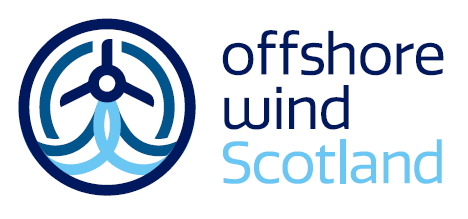Transitioning into Scotland’s offshore wind industry requires expertise across engineering, marine operations, subsea technologies, digital solutions, and health & safety. Key skill areas include mechanical and electrical engineering for turbine manufacturing and maintenance, marine and vessel operations for offshore logistics, and subsea installation for cable laying and foundation construction. Strong health, safety, and environmental (HSE) knowledge, including GWO-certified training is essential for working offshore. Additionally, skills in data analytics, AI-driven predictive maintenance, and cybersecurity are increasingly valuable as the industry adopts digital technologies. Employers from oil & gas, marine, and engineering sectors can transition by upskilling in renewable energy technologies, offshore safety standards, and digital asset management, ensuring they meet the growing demands of the offshore wind market.
Several offshore wind skills intelligence reports have identified key skill areas required for transitioning into offshore wind.

Key Skill Area Expertise Required
Engineering & Technical Skills
- Marine and Offshore Engineering: Understanding the construction, maintenance, and operation of offshore turbines and substructures.
- Electrical and Grid Connection: Expertise in offshore electrical systems, including cables, substations, and energy transmission.
- Mechanical Engineering: Knowledge of turbine mechanics, blade technology, and turbine assembly.
- Surveying & Monitoring: Skills in site surveys, monitoring the integrity of offshore structures, and environmental monitoring.
Maritime and Vessel Operations
- Offshore Vessels: Skills in operating and maintaining vessels used in offshore wind farms (installation, crew transfer, maintenance).
- Port Operations: Understanding port logistics for offshore wind operations, including docking, transportation, and storage of wind turbine components.
Health, Safety, and Environment (HSE)
- HSE Compliance and Standards: Offshore wind projects require rigorous safety protocols. Training in offshore health and safety, as well as specific certifications such as BOSIET (Basic Offshore Safety Induction and Emergency Training) or GWO (Global Wind Organisation) certifications.
- Environmental Management: Understanding of marine environmental protection and compliance with offshore wind project regulations.
Project Management and Operations
- Project Lifecycle Management: Knowledge of the stages of offshore wind development—from design and permitting to installation and operation.
- Supply Chain Management: Expertise in logistics, procurement, and inventory management specific to offshore wind farms.
- Risk and Cost Management: Understanding financials, risk assessment, and cost analysis for large-scale infrastructure projects.
Renewables-Specific Skills
- Energy Systems & Storage: Skills in offshore wind energy storage systems and integration with the grid.
- Data Analytics & AI: Use of data and artificial intelligence for performance monitoring, predictive maintenance, and optimisation of offshore wind farms.

